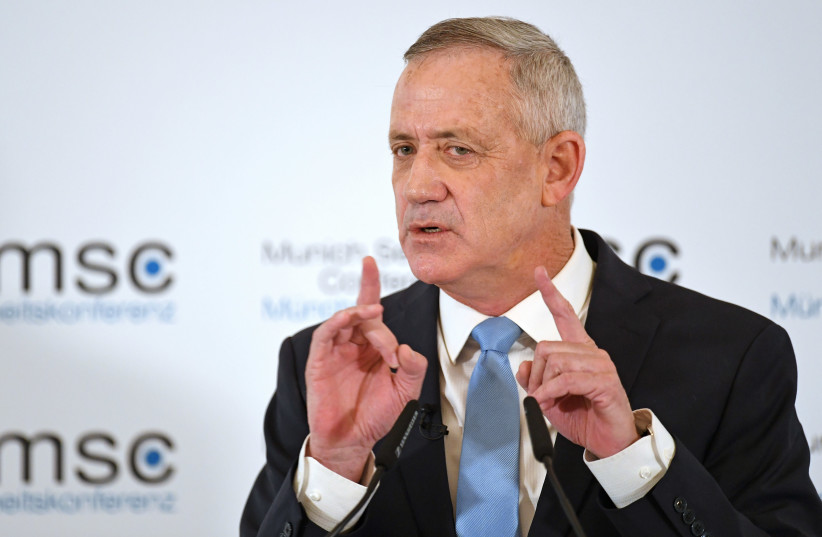The judicial reform continues to occupy the Israeli public, most of whom are interested in seeing the changes to the supreme court and the legal system being achieved by broad consensus.
Apart from the social and economic effects that occurred since the publication of the judicial reform, one of the main changes that followed was the shift in the map of mandates, mainly around the political center of gravity of the Israeli political spectrum. At the heyday of the protest against the reform, Prime Minister Benjamin Netanyahu’s Likud lost eight seats in the polls in favor of Benny Gantz’s National Unity Party, which gained sixteen seats, six of which came at the expense of Lapid’s Yesh Atid.
If at the beginning of the protest Gantz’s success was due to the disappointment with Netanyahu, who for his part behaved like a political novice and let Yariv Levin and Simcha Rothman manage the event while advancing the legislative process, later it stemmed from the disappointment from Yair Lapid, who for his part was portrayed as a politician who does not strive for unity and consensus. In the end, although recently since Netanyahu started to take control of the event and began striving for reform with broad consensus, the Likud began to recover a little in the polls, Gantz’s meteoric rise stems from the fact that he is now perceived as a kind of national savior who has managed to take votes from people who are located in the center of the political spectrum.
Benny Gantz is Israel's national savior – for now
The phenomenon of a politician being seen as a national savior is not new. Apart from the current case of Gantz, in recent years, there have been at least two politicians who for several months were seen as those who are going to save Israel and be a real alternative to Netanyahu’s rule. The first was Naftali Bennett, who in August 2020, shortly after the outbreak of the second wave of the COVID-19 pandemic, was seen by many Israelis as someone who would succeed in defeating the virus. Thus, in October 2020, Bennett won 23 seats in the polls, only three less than Netanyahu and five more than Lapid. The amazing thing was that the success of Bennett, one of the most right-wing politicians in Israel, was due to the support of many voters who were located in the center of the political spectrum.
HOWEVER, BENNETT’S tenure as the national savior was short and lasted only four months. In December 2020, Gideon Sa’ar made a comeback to the political arena and almost at the stroke of a sword was seen as the one who would bring about the end of Netanyahu’s rule. Sa’ar won 21 seats in the polls, six fewer than Netanyahu, while Bennett and Lapid dropped to 13 and 14 seats respectively. However, only three months later, Sa’ar was no longer seen as the national savior. In the elections held in March 2021, his party won only six seats, one less than Bennett’s party.

The obvious conclusion is that the role of a national savior is only temporary when public support for that momentary star is very fragile. It is true that Gantz is not Bennett nor Sa’ar. Besides being a former IDF chief of staff, Gantz has already had the privilege of leading a large party to impressive electoral achievements, when Blue and White under his leadership won at least 33 seats in all three election rounds in 2019-2020. Yet, the only reason Gantz is currently enjoying great success in the polls stems from the fact that the Israeli public wishes to see national unity and broad consensus on judicial reform, thus perceives National Unity’s leader as the only politician who will succeed in the task of reaching an agreed outline for the judicial reform with Netanyahu. At the same time, many of the voters of the center-left bloc, who in the 2022 elections saw in Lapid as a hope for change, are now interested in national unity and understand that the latter is not the right politician for the task.
In conclusion, while Netanyahu needs a broad consensus on judicial reform like air to breathe in order to restore his political status, improve the condition of the shekel and restore relations with the Biden administration, Gantz needs it just as much. For the National Unity’s chairman, who has already been portrayed as someone who has finished his role in Israeli politics, an agreed judicial reform would be a significant achievement that may pave the way for him to become prime minister after the Netanyahu era. Even if he does not decide to join Netanyahu in a national unity government, Gantz must do everything in his power to ensure that the talks at the president’s residence end successfully and that judicial reform is reached by consensus. Otherwise, if he is dragged after the agents of chaos, he may very quickly find himself like his predecessors in the role of a national savior on his way to the political desert.
The writer is a researcher at the Institute for National Security Studies (INSS) at Tel Aviv University, and a research fellow at the University of South Wales, UK. His recent book (co-authored with Christian Kaunert) is Israel: National Security and Securitization (Springer, 2023).
